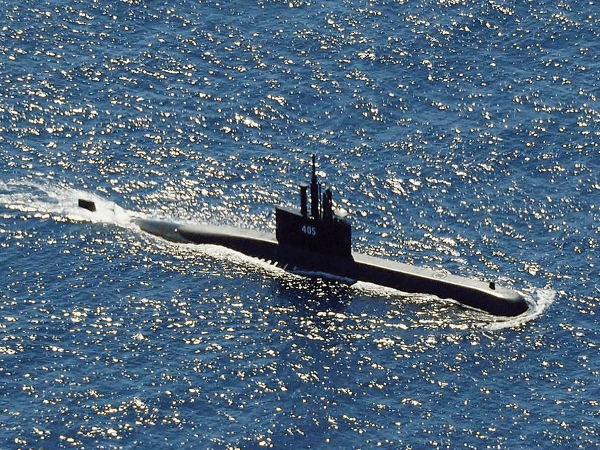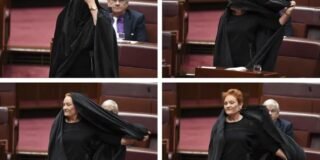
Since assuming office as the Member for Dickson in November 2001, Peter Dutton has consistently graced the front pages of newspapers, not for any commendable achievements, but rather due to a litany of offensive comments, falsehoods, hypocrisy, and inflammatory statements. His political career has been marred by funding scandals, ministerial interventions, and other faux pas that have linked him to dubious deals and questionable individuals. Moreover, his sheer incompetence has often overshadowed any semblance of effective governance.
Time and again, Dutton has claimed that he was misunderstood or taken out of context, attempting to gaslight the nation into believing that it is we who have misinterpreted his words and actions. While miscommunication can occur in politics, Dutton’s pattern of behaviour suggests a more troubling reality. This is not a series of one-off incidents; rather, it is a consistent watermark of his political career.
To understand Dutton, one must look beyond the man himself. His political lineage traces back to the Howard era, similar to his predecessors Tony Abbott and Scott Morrison. This connection helps to contextualise Dutton’s often obnoxious personality and political maneuvers. Understanding this lineage provides insight into the motivations behind his actions, particularly in light of the alarming prospect of AUKUS, which threatens to turn Australia into a nuclear target.
For decades, successive Liberal governments have pushed for Australia to embrace nuclear capabilities, a campaign that has roots going back to the 1970s. Under Scott Morrison’s leadership, Australia was ensnared in a web of deception involving the UK, the United States, and France, all for the sake of political gain and to create divisions within the Labor Party. Even after the Morrison government’s downfall, Dutton has continued to exploit this wedge, perpetuating the fear that Morrison so successfully conjured regarding an imminent threat from China.
The Albanese Labor government has made strides in debunking the exaggerated fears surrounding this supposed threat, but the ramifications of the AUKUS deal remain. The imposition of extreme secrecy regarding the AUKUS agreement, framed as a matter of national security, has left the Labor government grappling with a myriad of largely fabricated national security concerns. These issues include the deployment of US B-52 bombers in Australia’s north and the acquisition of nuclear submarines, which have stripped away Australia’s sovereignty and mocked the Albanese government’s commitment to the Treaty on the Prohibition of Nuclear Weapons (TPNW).
A critical aspect of the AUKUS deal is the choice of nuclear technology. Unlike the United States, which utilizes Highly Enriched Uranium (HEU) for its submarines, France leads the way in employing Low Enriched Uranium (LEU) technology. LEU is significantly less hazardous than HEU and requires substantial quantities to produce a nuclear weapon. If Australia had opted for French nuclear submarines, it could have paved the way for developing more affordable nuclear reactors using LEU, potentially enhancing our transition to renewable energy. Instead, Morrison’s political maneuvering has doomed any prospects for nuclear energy in Australia, a long-held aspiration of the Liberal Party.
The consequences of the AUKUS deal extend beyond energy policy; it has cost Australia a valuable opportunity to advance its renewable energy agenda and contribute meaningfully to the fight against climate change. Additionally, the safety of aging US nuclear submarines remains uncertain, raising legitimate concerns about whether these second-hand vessels could pose significant risks to human life.
This is the febrile atmosphere in which Dutton operates—a realm where fear and loathing are his tools of choice. His willingness to lie and incite division among the electorate blinds us to the opportunities for progress that are slipping away. His political missteps are not merely obstacles; they are regressive forces that threaten to drag Australia backward.
Former Prime Minister Malcolm Turnbull did not mince words when he referred to Dutton as a “thug” on ABC’s Nemesis, a sentiment echoed by many who have witnessed Dutton’s approach to governance. He has linked peaceful pro-Palestine protests to one of Australia’s darkest moments, the Port Arthur Massacre, showcasing an alarming tendency to manipulate narratives for political gain. His recent proposals for nuclear plants lack crucial details and community consultation, reflecting a concerning disregard for public discourse.
Moreover, Dutton has faced accusations of stoking Islamophobia, particularly following remarks about “Muslim candidates,” which led Australian cricketer Usman Khawaja to voice his concerns. In the House of Representatives, Independent MP Zali Steggall admonished Dutton to “stop being racist” after he called for a halt to accepting refugees fleeing Gaza, underscoring the need for politicians and the media to refrain from xenophobic stereotyping and scapegoating.
Dutton’s controversial tenure as Immigration Minister saw him make inflammatory comments about Lebanese-Muslims, suggesting that resettling them was a mistake. His insistence on speaking “the truth” while refusing to be intimidated speaks to a troubling pattern of behavior that prioritises political posturing over compassion and reasoned discourse.
Peter Dutton’s political career is marked by a troubling pattern of offensive rhetoric, manipulation, and incompetence. As we move forward, it is crucial to scrutinize not just his actions but the broader political context that allows such behavior to persist. Australia deserves leadership that fosters unity, progress, and genuine concern for the welfare of its citizens, rather than a divisive figure who thrives on fear and misinformation.

